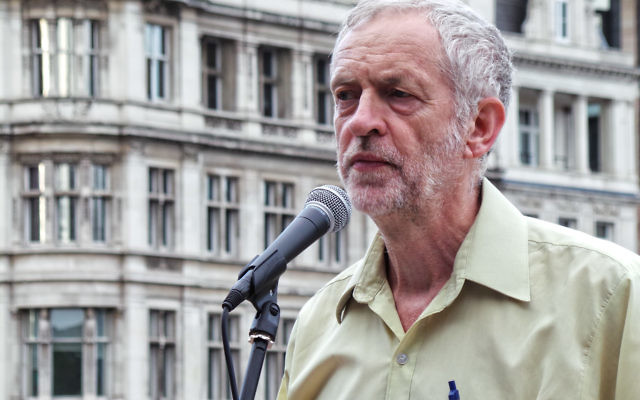MPs slam Labour over anti-Semitism
The British Labour Party has been accused of “demonstrable incompetence” in addressing anti-Semitism in a stinging report by a cross-party group of MPs.
The British Labour Party has been accused of “demonstrable incompetence” in addressing anti-Semitism in a stinging report by a cross-party group of MPs, that savages party leader Jeremy Corbyn, Twitter and the head of the National Union of Students.
The hard-hitting report, following a probe into anti-Semitism in the UK by the Home Affairs Select Committee, also proposes a revised definition of anti-Semitism to be adopted by law enforcement agencies and all political parties.
The MPs from across the House – who stressed they were united in their findings – said they believed Corbyn’s “lack of consistent leadership on this issue, and his reluctance to separate anti-Semitism from other forms of racism, has created what some have referred to as a ‘safe space’ for those with vile attitudes towards Jewish people”.
While Corbyn has a “proud record” of fighting racism, “we are not assured that he fully appreciates the distinct nature of post-Second World War anti-Semitism”.
Unlike other forms of racism, they claimed, “it paints the victim as a malign and controlling force, making it perfectly possible for an ‘anti-racist campaigner’ to express anti-Semitic views.”
The MPs welcomed the leader’s decision to commission an inquiry by Shami Chakrabarti but condemned her and Corbyn over her subsequent elevation to the House of Lords.
They also claimed her report was “ultimately compromised by its failure to deliver a comprehensive set of recommendations, to provide a definition of anti-Semitism or suggest effective ways of dealing with it. The failure of the Labour Party to deal consistently and effectively with anti-Semitic incidents risks lending force to allegations that elements of the Labour movement are institutionally anti-Semitic”.
However, the report stresses that other parties are not immune to accusations of anti-Semitism and urges all major parties to consider “whether recommended reforms could be applied to their own processes for for training and disciplining members”.
MPs expressed disappointment at Conservative Prime MinisterTheresa May’s failure to give evidence to the Committee and Liberal Democrat leader Tim Farron for “the manner in which he referred to disciplinary processes rather than explicitly condemning anti-Semitic statements by members”.
In a strongly-worded response, Corbyn accused the MPs of failing to look in detail at combatting anti-Semitism in other parties, schools or civic institutions – and defended Chakrabarti against “unfair” criticism.
While endorsing some of the recommendations and suggesting the report “echoed” some of the Chakrabarti findings including on training and use of the word ‘Zio’, he attacked the committee for rejecting requests to give evidence from Chakrabarti and the Jewish Labour Movement and for not taking oral testimony from any women.
The Labour leader added: “The report’s political framing and disproportionate emphasis on Labour risks undermining the positive and welcome recommendations made in it.
“Although the Committee heard evidence that 75 percent of incidents come from far right sources, and the report states there is no reliable evidence to suggest anti-Semitism is greater in Labour than other parties, much of the report focuses on Labour.
“As the report rightly acknowledges, politicising anti-Semitism – or using it as a weapon in controversies between and within political parties – does the struggle against it a disservice. Under my leadership, Labour has taken greater action against anti-Semitism than any other party, and will implement the measures recommended by the Chakrabarti report to ensure Labour is a welcoming place for all.”
However, in a video released to coincide with the report Labour MP and committee member Chuka Umanna admitted, “We do have a problem … where anti-Semitism has been allowed to happen and has not been consistently and properly dealt with.”
The report urges government, political parties and law enforcement agencies to adopt a slightly altered version of The Holocaust Remembrance Alliance definition of anti-Semitism. That definition takes into account modern forms of anti-Semitism like comparing Israeli policy to Nazis and denying Jewish people the right to self-determination.
The report also calls for the addition of two clauses to make it clear it’s not anti-Semitic to criticise Israeli policy or take a particular interest in Israel without further evidence of anti-Semitic intent.
The committee also wades into the row over NUS President Malia Bouattia and her “broken” relationship with Jewish students.
They suggest her comments branding Birmingham University “a Zionist outpost” smacks of “outright racism” and accuse her of displaying “a worrying disregard for her duty” to represent all students and promote balanced debate.
JUSTIN COHEN


comments